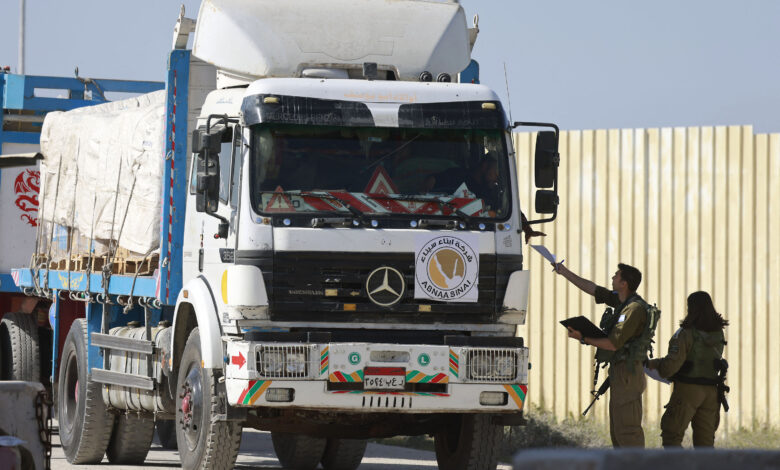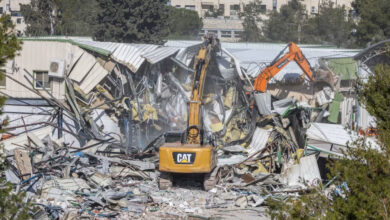
The UN Office for the Coordination of Humanitarian Affairs (OCHA) is warning of the repercussions of declining humanitarian access in parts of Gaza and the blocking of aid at the Kerem Abu Salem/Kerem Shalom border crossing on Thursday and Friday.
“On January 25 and January 26, Israeli protesters blocked aid trucks from accessing Gaza through the Kerem Shalom crossing,” OCHA said in a statement early Saturday, adding that the trucks carrying food, flour, tents, and hygiene items were not able to enter the strip.
The protests were organized by families of Israeli hostages held in Gaza in order to stop aid getting into the strip through Kerem Shalom until the return of all abductees
“Representatives of the families of the abductees arrived at the Kerem Shalom crossing and prevented trucks carrying a lot of aid to Hamas from entering the Gaza Strip,” the Hostages and Missing Persons Families Forum spokesperson Haim Rubinstein said in a statement on Friday.
“This is the third day that the families physically prevent the transfer of aid to Hamas.”
Israel’s Coordinator of Government Activities in the Territories (COGAT) confirmed to CNN that no trucks had entered Gaza through Kerem Shalom on Thursday or Friday due to the protests.
Meanwhile, OCHA said that only about 15 percent (eight out of 51) of humanitarian aid missions planned for northern Gaza between January 1-25 were facilitated, while 29 were denied.
The remaining missions included two that were partially facilitated, four postponed, and eight impeded due to unpassable routes and “excessive delays” at checkpoints.
During the same period, OCHA says 63 percent (55 out of 87) of humanitarian aid missions to Gaza’s middle area were facilitated, with 22 missions denied and 10 others postponed.
“This [declining access] has been an emerging trend since January 12 where increased military activity is hindering humanitarian movements both to and from hospitals and humanitarian sites,” OCHA said.
The head of the UN Human Rights Office Ajith Sunghay further warned on Friday of the deteriorating conditions in the southern governorate of Rafah, where 1.3 million Palestinians are sheltering.
“I saw displaced people who had been ordered by Israeli authorities to leave their homes, with no provision for their accommodation, literally living on the street, with sewage running in the streets and conditions of desperation conducive to a complete breakdown in order,” Sunghay said in a statement.
“Humanitarian aid needs to be delivered without impediment to all those who need it.”




